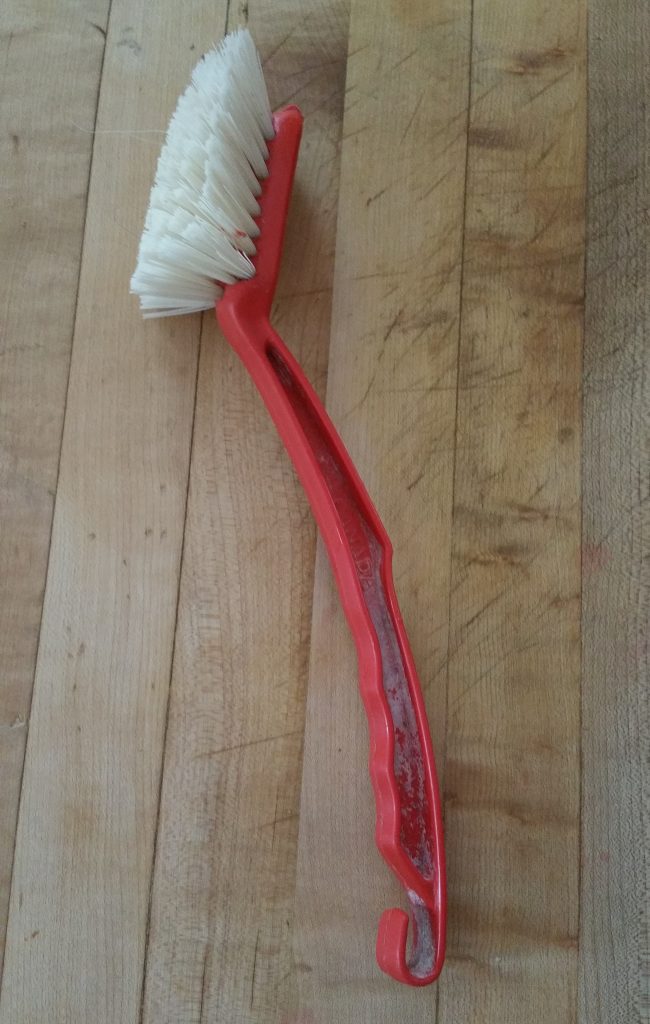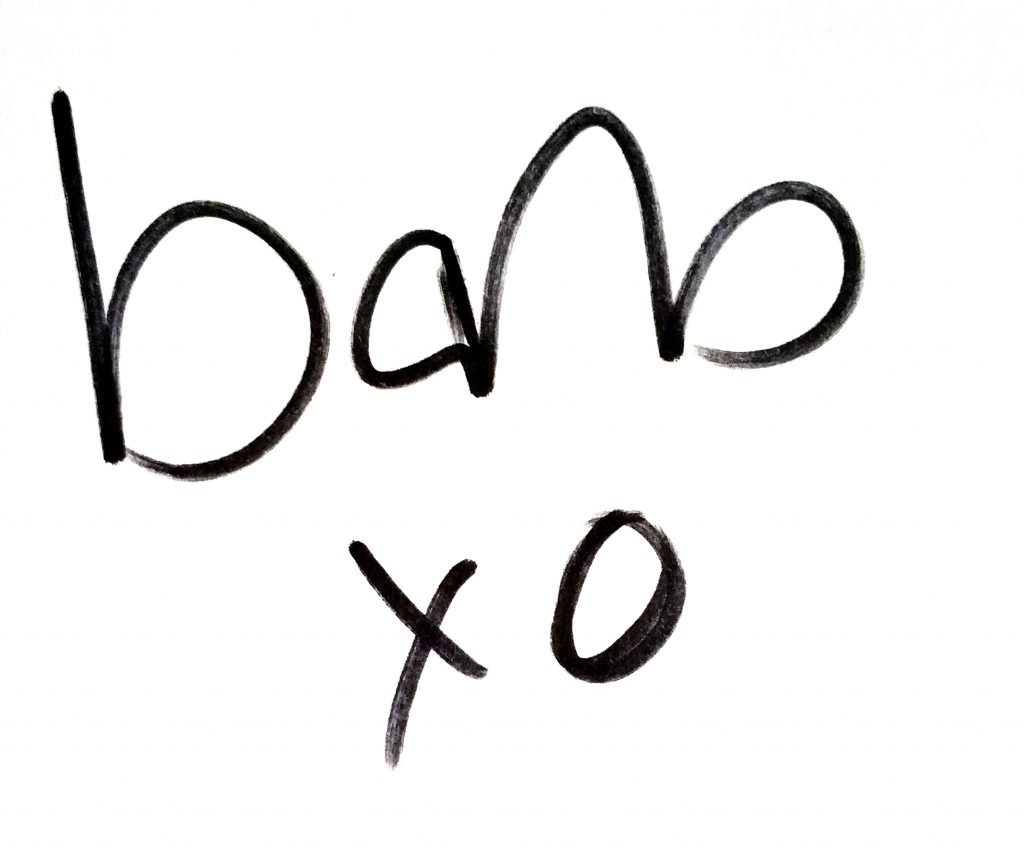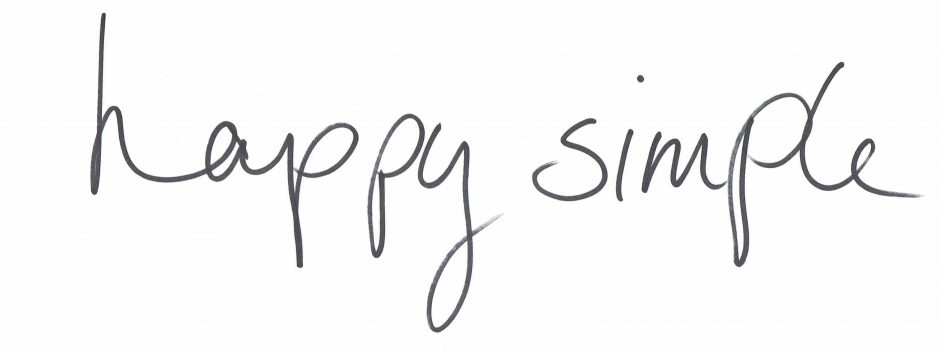
I have a plastic, long-handled scrub brush, the kind used for cleaning vegetables and other kitchen tasks. There’s nothing really attractive about it and the fact that it’s made of plastic makes it a bit of an embarrassment as I try to move to a more eco-friendly lifestyle. I don’t even remember where it came from, but it’s been with us a very long time, as evidenced by the hard water deposits on the handle.
Browsing through my Instagram feed, I came across a company that sells a lovely wooden version with a replaceable head that can actually be composted because the bristles are real bristles.
And I was really tempted to order one.
Thankfully, the shipping costs gave me major sticker shock. Because it gave me time to realize that all the lovely, home-makey tasks I was dreaming of using this wonderful, natural brush for could be accomplished just as well with the ugly plastic brush that I already own.
So now it’s out and handy and I’m using it on a daily basis for cleaning off my veg and scrubbing crusty bits off my pots and pans. I will keep it and use it until the bristles wear down to nothing and only then will I toss it aside for the much more aesthetically pleasing version that, I have discovered, is now on offer in a pretty little boutique downtown.
There is this temptation, as we try to pursue a lighter footprint, slow living, mimimalism or whatever you want to call it, to shop for solutions to problems when we already have something that would do the trick, even if it is a little ugly or embarrassing.
But buying new, no matter how ethical, sustainable or fair-trade-sourced the item may be, is never as good a solution as using what we already have, unless, maybe, we’re talking about ancient fridges, in which case, they should be unplugged and replaced.
I’ve had conversations with people who have seen the light and done a massive clear-out of their cupboards and then gone and replaced the environmentally suspect items with masses of newer, better things.
I don’t think that leads to lasting change. Or a less fractured environment.
By hanging on to my scrub brush, I’m giving myself the opportunity to think a little more deeply about the things I purchase. It’s allowing me so say no to other bits of plastic, like those abrasive green scrubbing pads. It’s annoying enough that the next time I’m tempted to purchase an easy-seeming solution, I might just remember it and be able to put the item back and think of a better answer.
If you like the thought of using what you have, finding your own solutions instead of buying them, I think you’ll really enjoy this series of posts on Carmella Rayone’s beautiful blog. In it, she walks us through the kind of everyday decisions we all have to make, thoughtfully and gently. I hope you enjoy them as much as I do!





